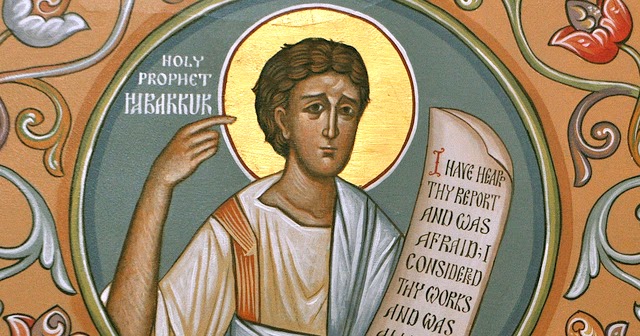 Today is the feast of the Holy Prophet Habakkuk. As you know, the Byzantine Church pays more attention, liturgically speaking, to the Old Testament prophets.
Today is the feast of the Holy Prophet Habakkuk. As you know, the Byzantine Church pays more attention, liturgically speaking, to the Old Testament prophets.
The fourth Ode of the Canon of Matins is the Hymn of Habakkuk. The Irmosi of the Canon often describe Habakkuk as standing at a guard post (watchtower): “I will stand at my guard post, and station myself upon the rampart; I will keep watch to see what he will say to me, and what answer he will give to my complaint. (Habakkuk 2:1) Thus, at Paschal Matins, we sing, “Let Habakkuk, speaking in behalf of God, stand with us at the divine watch; let him show us the brilliant Angel who proclaims: “Today, salvation comes to the world; for Christ, being Almighty, is risen.” What Habakkuk saw at his guard post was a vision of the coming of Christ. “God came from Teman, the Holy One from Mount Paran. His glory covered the heavens, and his praise filled the earth; his splendor spread like the light.” Teman is the East, the sunrise from on high in the Christmas Troparion, “those who worshiped the stars have learned from a star to worship you, the Sun of Justice, and to know you, the Dawn from on high.” In the Greek Septuagint, Mount Paran becomes the “dark, shady mountain,” and was seen as a prophecy of the virgin birth of Christ from Mary.
The Christmas Irmos explicitly recognizes this: “O Christ, the rod from Jesse’s root and its flower, you blossomed from the virgin; praiseworthy one, from the overshadowed shady mountain. You came in the flesh from her who knew not man.” What was the result of Christ’s coming, Habakkuk foretells, “He stood and shook the earth; he looked and made the nations tremble. Ancient mountains were shattered, the age-old hills bowed low, age-old orbits collapsed.” The “orbits” were the established journeys of the stars, and indeed, at Christ’s birth, a new star appeared, leading the Magi to Bethlehem.
Habakkuk tells us that our lives will be shaken by the coming of Christ. We must follow the star, for by taking human nature and by rising from the dead, Christ has brought us life.
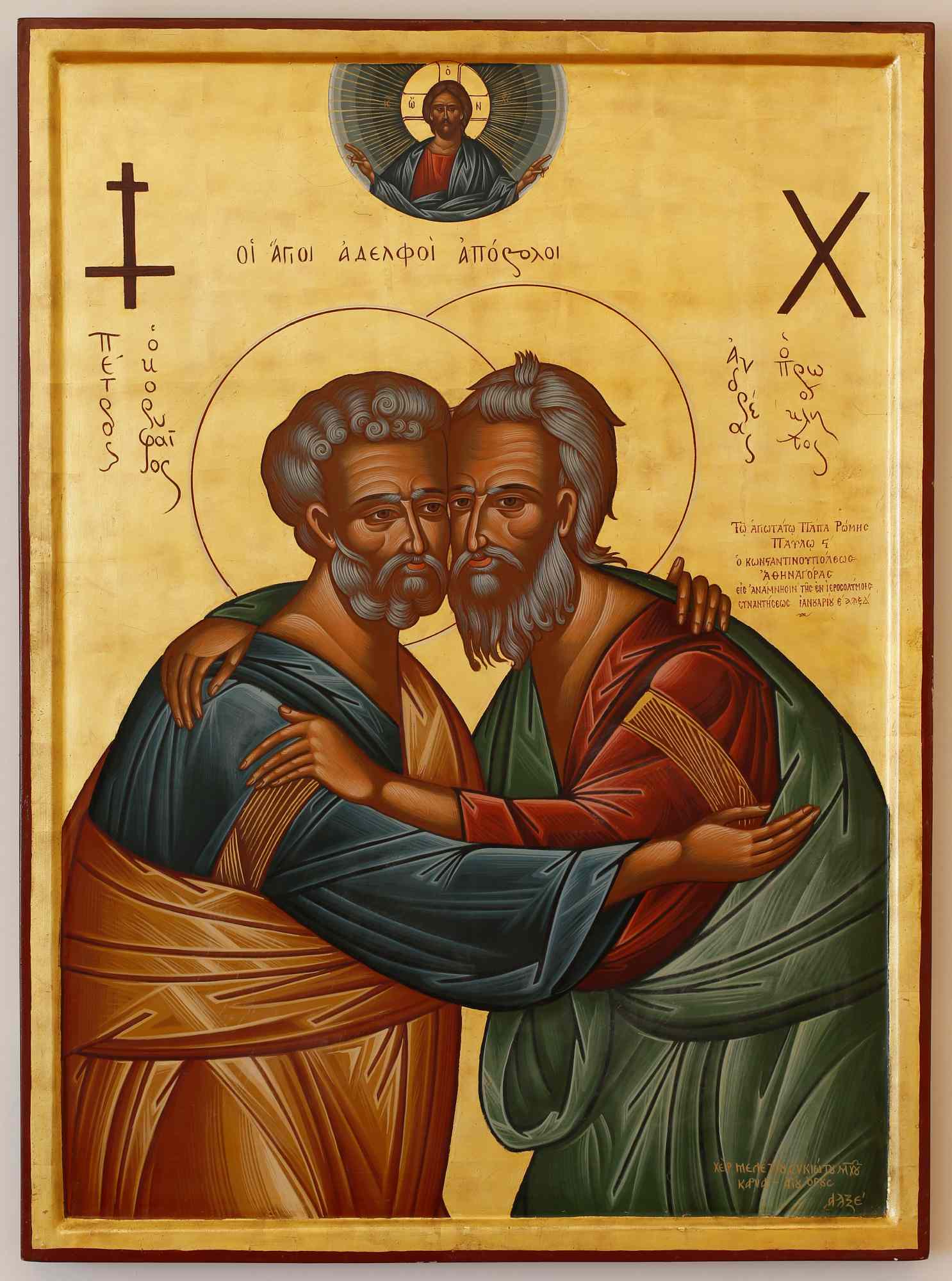 It is a legend, but also a symbol, that St. Andrew evangelized the town of Byzantium before it would become a great city. The symbol, therefore, is that Rome, the West, and Constantinople (Byzantium), the East are united in the fraternity of the two apostles, Peter and Paul. In our broken world, the Church is hampered in preaching the gospel by internal divisions. The Catholic and Orthodox Churches are heroically trying to re-unite to preach the one true Gospel of our Lord Jesus Christ. They are hampered by narrow-minded people in both Churches, who cannot see Christ living in the eucharist of these Churches. There is only one Christ in Holy Communion, and we do not partake of one Christ, and the other another Christ. There is only one Christ born of Mary in Bethlehem, whose Body we cannot divide. Now is the proper time for the one Church to proclaim the one Lord and Savior in the one holy Gospel. We must pray for unity this Christmas that we are not too late.
It is a legend, but also a symbol, that St. Andrew evangelized the town of Byzantium before it would become a great city. The symbol, therefore, is that Rome, the West, and Constantinople (Byzantium), the East are united in the fraternity of the two apostles, Peter and Paul. In our broken world, the Church is hampered in preaching the gospel by internal divisions. The Catholic and Orthodox Churches are heroically trying to re-unite to preach the one true Gospel of our Lord Jesus Christ. They are hampered by narrow-minded people in both Churches, who cannot see Christ living in the eucharist of these Churches. There is only one Christ in Holy Communion, and we do not partake of one Christ, and the other another Christ. There is only one Christ born of Mary in Bethlehem, whose Body we cannot divide. Now is the proper time for the one Church to proclaim the one Lord and Savior in the one holy Gospel. We must pray for unity this Christmas that we are not too late.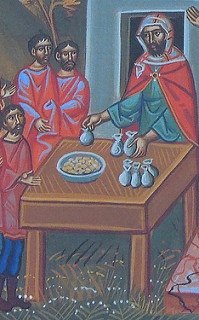 Read: Ephesians 5:9-19; Luke 12:16-21
Read: Ephesians 5:9-19; Luke 12:16-21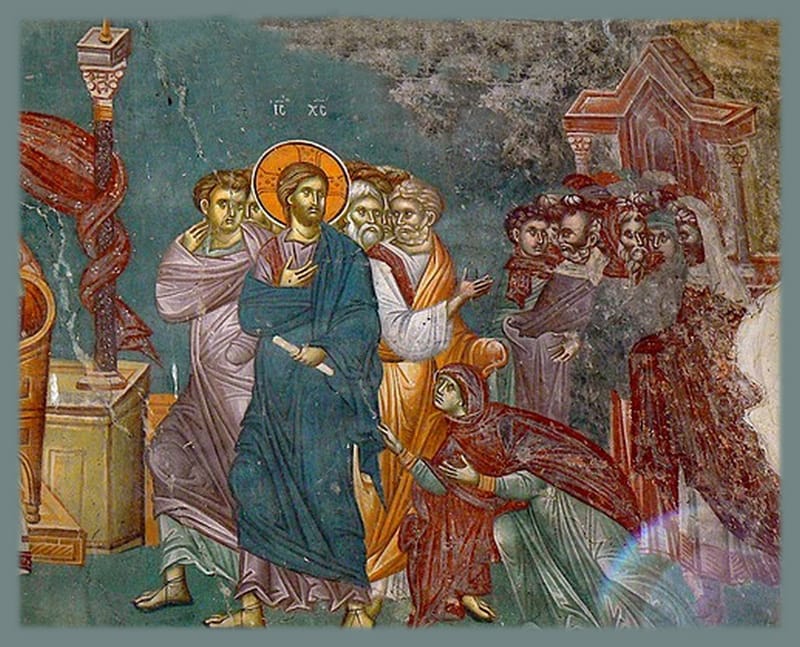 Read: Ephesians 2:14-22; Luke 8:41-56
Read: Ephesians 2:14-22; Luke 8:41-56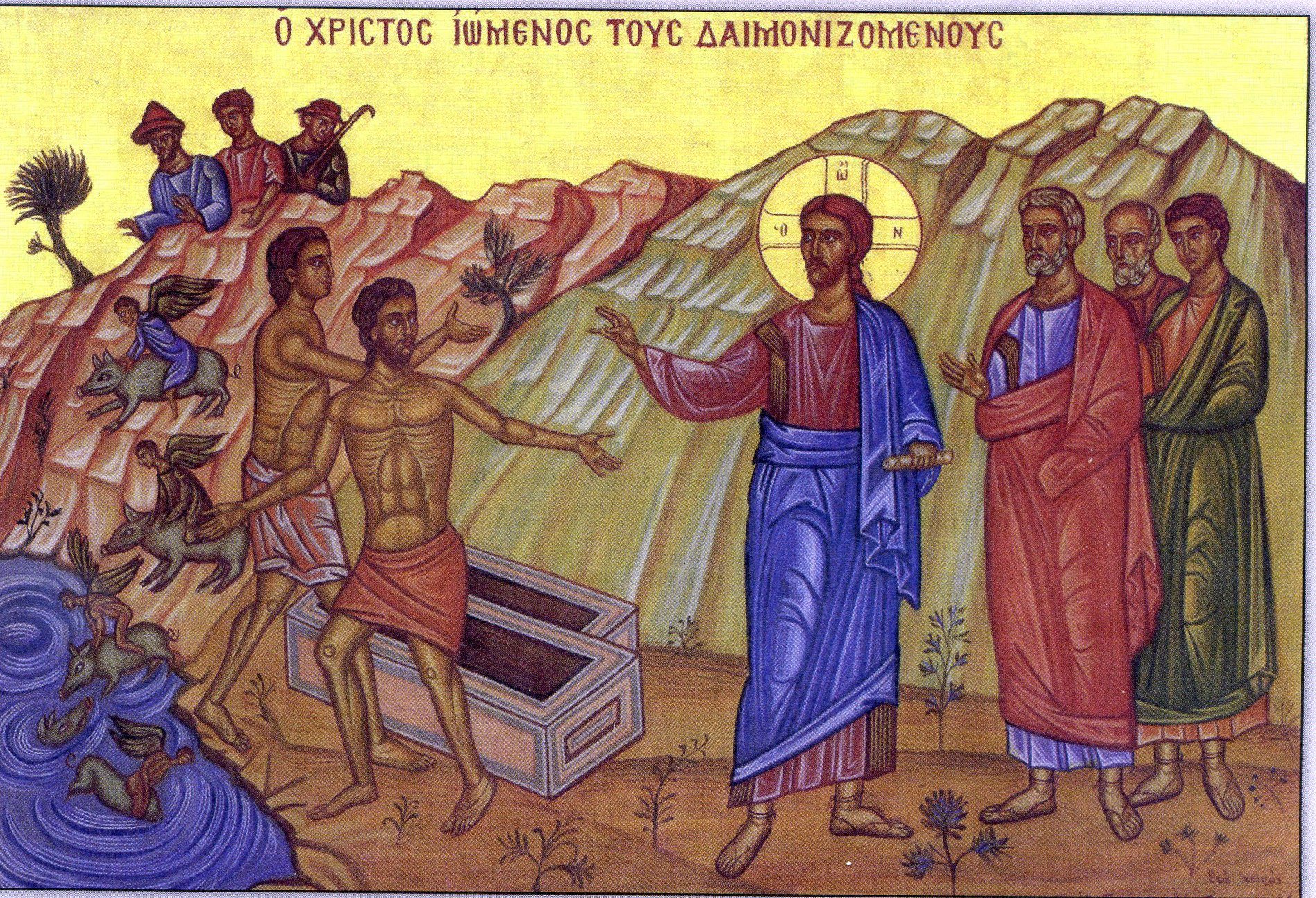 Read:
Read: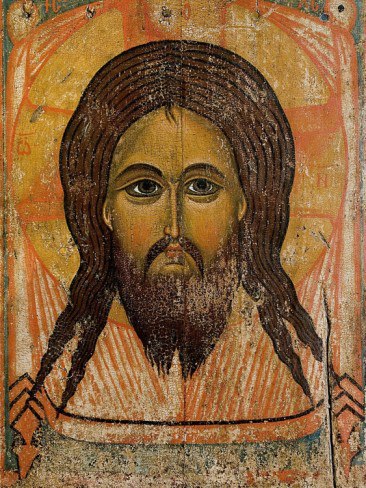 “There is nothing hidden that will not become visible, and nothing secret that will not be known and come to light” (Luke 8:17).
“There is nothing hidden that will not become visible, and nothing secret that will not be known and come to light” (Luke 8:17).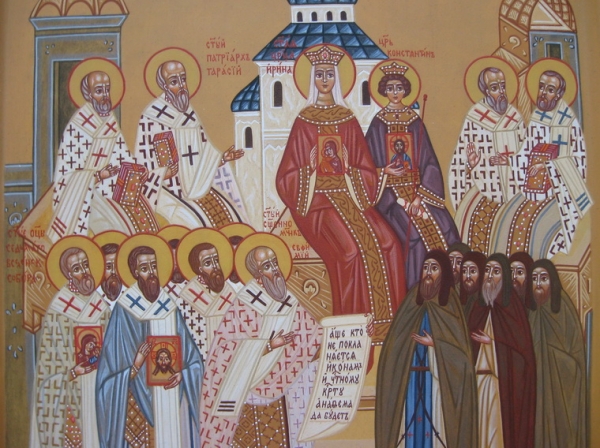 On this Sunday, we also remember the Nicea II Council in 787, which defined that we can make images (icons) of our Lord and the saints, and venerate them. This council was held in the midst of the iconoclastic (the “image breaking”) controversy, the first phase from 726-787, and the second phase from 814-842. It draws attention to how important images are for us. I know of few homes that do not have a picture, today usually a photograph but sometimes a portrait or drawing, of those we love. If we love Christ first with our whole heart and mind and soul, the image helps us to focus that love.
On this Sunday, we also remember the Nicea II Council in 787, which defined that we can make images (icons) of our Lord and the saints, and venerate them. This council was held in the midst of the iconoclastic (the “image breaking”) controversy, the first phase from 726-787, and the second phase from 814-842. It draws attention to how important images are for us. I know of few homes that do not have a picture, today usually a photograph but sometimes a portrait or drawing, of those we love. If we love Christ first with our whole heart and mind and soul, the image helps us to focus that love.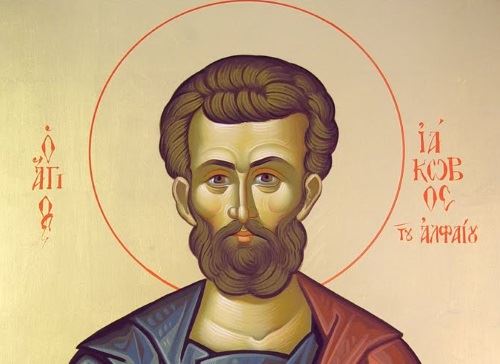 The Byzantine Church discerns three apostles named James: James the Greater, the son of Zebedee; James, the Brother of the Lord and first bishop of Jerusalem; and James, the son of Alphaeus. We celebrate the feast of the latter today. He is the James about which we know the least. The only mention of him was in the lists of the Twelve Apostles. Some speculate that he was the James mentioned by St. Paul in 1 Corinthians 15:7, “After that he appeared to James, then to all the apostles,” but commentators even doubt that was this James, also called “James the Lesser.” However, it does point to the mission of the apostles, which was to proclaim the risen Lord, a message which has resounded throughout the ages to this very day.
The Byzantine Church discerns three apostles named James: James the Greater, the son of Zebedee; James, the Brother of the Lord and first bishop of Jerusalem; and James, the son of Alphaeus. We celebrate the feast of the latter today. He is the James about which we know the least. The only mention of him was in the lists of the Twelve Apostles. Some speculate that he was the James mentioned by St. Paul in 1 Corinthians 15:7, “After that he appeared to James, then to all the apostles,” but commentators even doubt that was this James, also called “James the Lesser.” However, it does point to the mission of the apostles, which was to proclaim the risen Lord, a message which has resounded throughout the ages to this very day.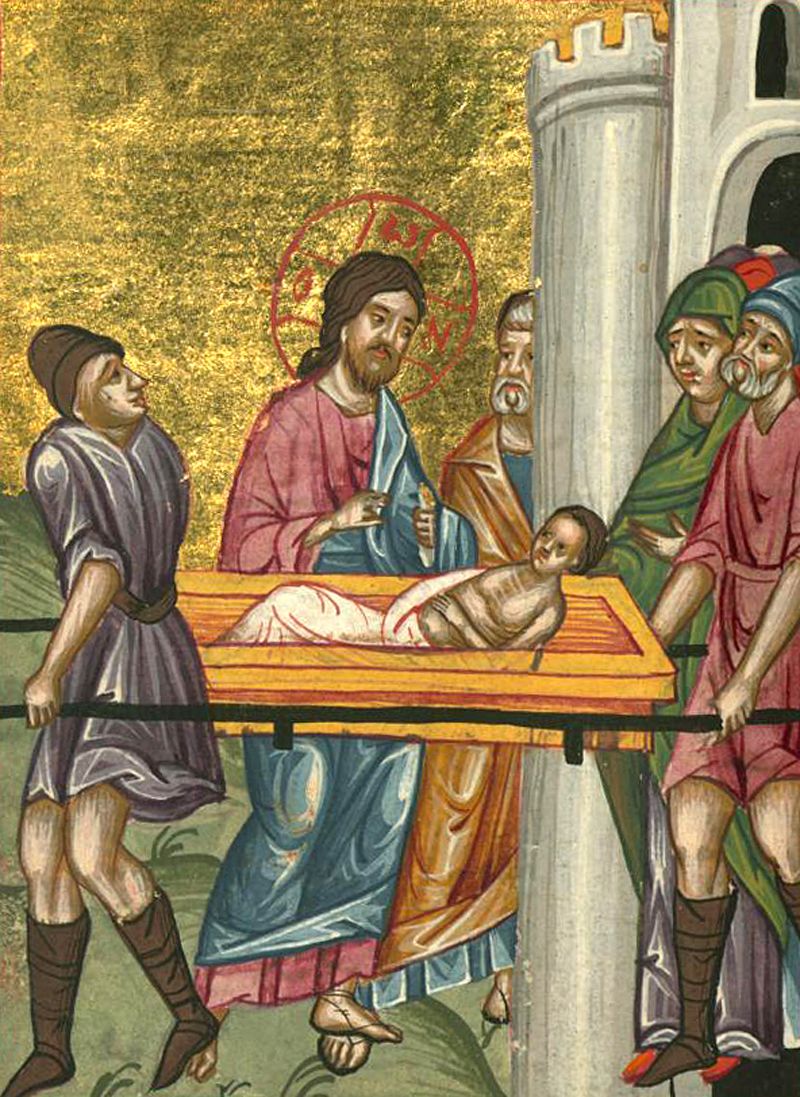 Our Lord is the Life-giver. The gospels record Jesus’ presence at baptisms and weddings, but never at a funeral, for death cannot remain in the presence of the Giver of Life. Today Jesus comes upon a funeral in the village of Nain, it seems almost accidently and by chance, though nothing ever happens totally by chance. Jesus stops the funeral and raises up the young man, the only son of a grieving widow.
Our Lord is the Life-giver. The gospels record Jesus’ presence at baptisms and weddings, but never at a funeral, for death cannot remain in the presence of the Giver of Life. Today Jesus comes upon a funeral in the village of Nain, it seems almost accidently and by chance, though nothing ever happens totally by chance. Jesus stops the funeral and raises up the young man, the only son of a grieving widow.